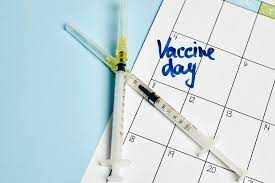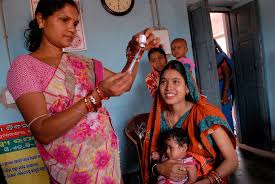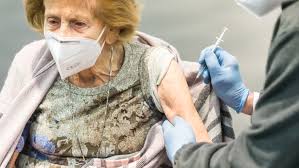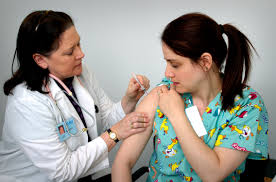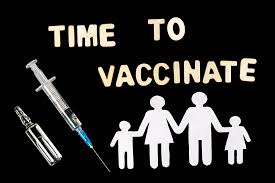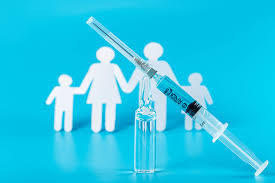Why Vaccination is important for Women, and a way forward?
4 minuteRead

National Vaccination Day 2022 recognizes and emphasizes the importance of vaccines and how, in today's world, their importance must reach to the women. It is the gender gap that is witnessed in the vaccination process because of which women are left behind. Here are few things to know about the importance, challenges, and possible ways to decrease this effect and spread the awareness, by making the process free from gender biasness.
By Samyati Mohanty
Vaccines have become an important tool in the fight against life-threatening diseases all around the world in recent decades. National Vaccination Day 2022 recognizes and emphasizes the importance of vaccines and how, in today's world, their importance cannot be under estimated.
Vaccines save about 2 to 3 million people per year, according to a World Health Organization report, and since the COVID-19 epidemic has swept the globe, the Indian government is taking all necessary steps to vaccinate every Indian citizen against the disease.
National Vaccination Day 2022 kicks off a discussion about the importance of vaccines and why people should get themselves, their family members, and their children vaccinated for disease protection.
Women's health is always a hot topic, but it's especially relevant in May when we commemorate Mother's Day and National Women's Health Week. The American Medical Women's Association (AMWA), a proud sponsor of the NFID Keep Up The Rates campaign, is emphasising the need for vaccination for women of all ages, especially those who may have missed out during the COVID-19 pandemic.
Vaccines are recommended to help protect our communities from harmful diseases. What are some of the obstacles to increasing female immunization rates?
COVID-19 vaccines are administered to women at a higher rate than they are to men, according to data. This is also true for other vaccines, however, when it comes to women getting vaccinated, there are still large gaps. Disparities can be found in communities of color, in communities with language obstacles, and rural areas of the country. More educational tools are needed to enhance awareness of the need for vaccination among these communities. Vaccines for children and teenagers are frequently discussed, but as women grow older, they are less frequently advocated.
Another issue is that women frequently forget to look for themselves. Women make sure their children are immunized, but sometimes forget that they, too, require recommended vaccines to keep healthy.
Women are sometimes not valued as vital members of the family or society, and hence the vaccine gender gap reflects the gender inequality that exists in India and around the world.
There is apprehension due to rumors regarding the vaccine's negative effects and how it impacts fertility and menstruation. Other obstacles include women's inability to access the technology required to register, a lack of knowledge about where the centers are located, and their inability to visit the centers alone.
Women frequently require the approval of their husbands to get immunized. Even if women acquire it, they will miss out if their husbands are unable to accompany them.
During the COVID 19 immunization push, intially people did not think it is vital to register women of the house on the CoWin app. Their health was not a priority, and they were not considered at risk if they do not work outside the home.
While Rural women-93% and Urban women-77%, work in the informal sector, most employers did not consider it as their obligation to guarantee that their female workers are vaccinated.
Why is it especially vital to encourage women to be vaccinated as we move past the COVID-19 pandemic?
It's critical to encourage immunizations among women because, as with every crisis, the focus is on the catastrophe... and other things fall to the wayside. Women have not been obtaining regular preventive care due to social isolation and constraints during the pandemic.
As we emerge from crisis mode and attempt to move past the epidemic, must focus on our health and catch up on any services we may have missed. It should be advised to women to schedule yearly wellness checkups, mammograms, Pap smears, and other screening exams as needed, and to discuss recommended immunizations with their healthcare provider. One of the most efficient and simple strategies to prevent major infectious diseases is vaccination.
What can we do to boost women's vaccination rates?
Parents are frequently careful about getting their children vaccinated, but many overlook the need of getting themselves inoculated. This has been acknowledged by healthcare providers, who are now using children's immunization appointments to communicate to parents about adult vaccines. Parents and children can receive vaccination against influenza (flu) and other infections together at some health centers. This technique protects the entire family more effectively and is often more convenient for busy families. With the present focus on COVID-19, it's critical to make use of this chance to inform women about other vaccines that can help them avoid potentially fatal infections.
For Covid-19 vaccination, the ministry of health and family welfare announced that anyone might walk-in into a vaccination center without even the need for pre-registeration on the app, making it more accessible as well as feasible to women.
But there was still work to be done to close the gender gap in vaccination. We need to encourage walk-ins and make immunizations more accessible to people's homes. There is also a need to develop public health education materials and references that are translated into regional languages and graphically depicted-pocket manual kind. The vaccine campaigns must be put into “mission mode”.
It wasn't only a matter of getting in. We must address the social norms and core factors that have resulted in this disparity. The importance of vaccines specially for women like HPV vaccine needs to be highlighted and massive campaigns are needed to spread the awareness.
Write, Record and Answer! Consume Unlimited Content! All you need to do is sign in and its absolutely free!
Continue with one click!!By signing up, you agree to our Terms and Conditions and Privacy Policy.




